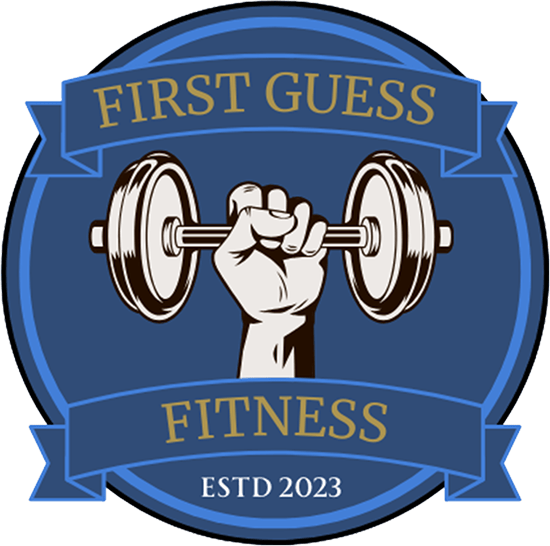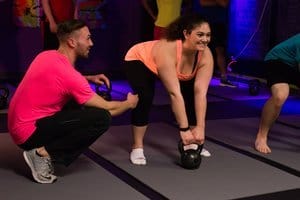Getting started on (or continuing for that matter) on your fitness journey doesn’t have to be such an intimidating and daunting task. There is something, however, you should keep in mind.
Let me begin by saying the after working with hundreds of people from every walk of life at AMP, we’ve noticed a few things when most folks are getting started. We’ve also noticed the stories of our our most successful members are VERY similar. Those who’ve experienced the BEST and most sustainable fitness results have realized this one thing:
The hardest part about getting started is realizing how far you STILL have to go…
Seriously.
And I’m going to tell you why…
They knew for a while that it was time to start going to the gym, but hey — it’s pretty hard to figure out how to balance exercise along with a busy schedule and a new season of Game Of Thrones coming out errr… I mean a thriving social life.
And for many, they were joining a gym for the first time in their lives — meaning that not only did they feel like they didn’t know what to do…
But they being vulnerable and telling other humans that they needed help. And we totally understand how THAT is a very difficult thing to do.
And that is, really, what this blog is about…
Why You Lack Confidence
Whether you’re a beginner or a battle-tested work out hero, it’s perfectly normal to feel like you aren’t very good at something if you’ve never done it before or even if it’s just been a while.
You may get super-dy-duper excited that that know what you’re doing shortly after you make the leap into the fitness unknown…but that confidence quickly dissipates. Then some people may be left with slightly less confidence than when they started and others may retreat entirely.
But you know what?
This is 100% NORMAL. Yay!
In fact, it’s probably a good thing and really important to understand. Even Science™ (real science not fake science) says so and there’s a reason for this phenomenon.
You see, in the field of psychology, the Dunning–Kruger effect is a form of cognitive bias in which people of low ability suffer from an illusion of superiority, mistakenly assessing their ability as greater than it is.
In other words, they know so little that they don’t know what they don’t know. (I hope that made sense)
Often times, when our confidence in ability is at it’s lowest, we are in the process of learning and are actually significantly closer to becoming an expert. Yes, that’s despite the fact that we feel like we haven’t progressed one bit and may have entered a state of existential dread. Neat?
How To Use This To Your Advantage
If you’ve read this far, it means that you’ve already leveled up. So don’t worry, cool things are going to happen!
Your new super power is that now you have the ability to recognize this the next time you’re in a shitstorm of suckers. Think back to that one time you were trying to learn kettlebell swings and as soon as you felt like you nailed it…you had to take a few steps back to.
Whether you’re in the middle of learning a new job, trying out kettlebells for the first time, or finally taking that pole dancing class that you’ve been thinking about for years…
Embrace the suck.
All that it means is that you’re smack dab in the middle of your journey to becoming a fitness ninja.
What You Can Do
One of the hardest parts about finding yourself somewhere between being a beginner and a master is the feeling that you’re the only one who hasn’t progressed.
Now, this is where I have one important recommendation… find a coach or group to help guide you. Just make sure that it’s the right coach or group that is going to:
- Understand where you are on your fitness journey and
- Support you unconditionally cause you ALREADY awesome AF.
It’s important to note that sometimes other humans will lack the #1 ingredient to helping YOU be successful.
What’s that ingredient?
Empathy.
You’ve probably seen countless ‘motivators’ on the interwebz or TV who’s approach is yelling, screaming, telling you that you’re a baby. People like this generally make you feel shittier afterward.
No bueno.
You’ve also probably had quite a few ‘yes men’ in your corner — and they’re just as bad. Yes, you ARE awesome but you do need someone to tell you when you’re self-sabotaging or off track.
A good coach or group will:
- Listen to you (not talk at you)
- Value and understand you (not yell at you)
- Help you understand what you can work on (not choose for you)
- Meet you where you’re at (not where they want you to be)
Here’s the most important questions to ask your next trainer or coach:
“How will you react if I’m having trouble staying consistent?”
If your coach answers something about motivating or pushing you… they might not be the right fit. This means they don’t trust you to make the right decisions for you. The true is that you CAN with a little guidance. On the other hand, an empathetic coach will focus more on fitting the program to you, than making you fit the program.
Other important ways to make sure that your coach is the right fit…
- A good coach will ALWAYS ask you like a billion questions and then take you through a fitness screen before your first training session. They want to understand YOU and where you’re at now.
- They go above and beyond to teach you both the things you want and need to know. You should learn more about yourself and about your body which will help empower you for the long run.
This is how we do it…
Here at AMP, we like to have dedicated Sherpa’s for all of our members to ensure that your journey to the glorious fitnessland is as smooth as possible.
Whether you have questions about fitness and nutrition, or you just want to make sure that you’re still progressing, your Sherpa is there to coach you when you need it the most.







